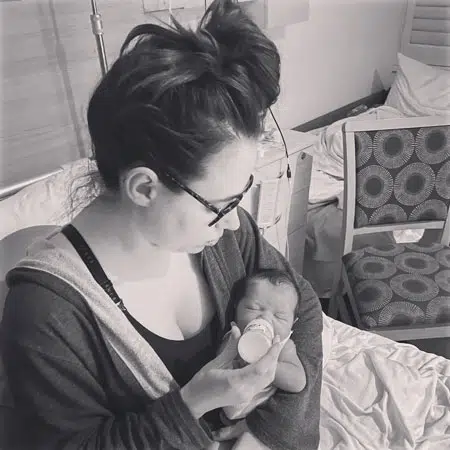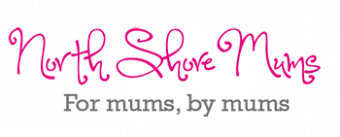Having a baby is a life-changing moment, but for some, the perinatal period comes with increased anxiety, depression and other perinatal mental health issues that can often go undetected. Rebecca McMartin, 29, shares her experience, along with the invaluable help she received from Gidget House.
I’ve never been shy about my history with mental ill health – all 15 years’ worth of it. In fact, I was always proud of myself for being comfortable enough to ask for help, for managing any lapse through strategies I learnt in therapy, and for knowing myself well enough to recognise the signs.
But then I fell pregnant and had a baby.
Within two weeks of my son’s birth in July 2021, I was admitted to a mother-and-baby psychiatric hospital (MBU). Pride was the last thing I felt.
From the start of my pregnancy, I was in contact with the social worker at my hospital and a wonderful psychologist through Gidget House. I was proud of these decisions. I wanted to minimise my risk of postpartum anxiety and depression, and I didn’t want mental ill health to interfere with parenting. I truly thought I was doing everything ‘right’.
But I was anxious from the moment I saw the faint line on my pregnancy test. The part that frustrates me is that I knew I had antenatal anxiety – health anxiety, rumination, intrusive thoughts, and insomnia were a daily feature of my pregnancy – but I was functioning well, so I was in denial about the severity.
Besides, my focus was on the postpartum period, because that’s what we’re told to worry about, right? The retrospective realisation that I’m not as self-aware as I always thought made me feel like a failure, and that everything that happened next was my own fault.

A smiling Rebecca at her baby shower
Preparing for birth
Roughly two months before my son was born, my anxiety skyrocketed because I developed an extreme fear of birth and was convinced I would be traumatised by the process. In my mind, trauma would increase the likelihood of experiencing postpartum depression, which only escalated my anxiety further.
I learned about postpartum psychosis at this time too and my anxiety spiralled to new depths, because I couldn’t bear the thought of potentially ‘losing my mind’ and harming my baby.
Long gone was any logic to tell myself I would be able to cope with whatever situation I was confronted with. I began having daily panic attacks and would burst into tears any time I thought about birth. The fear was paralysing.
To cope, I began to hyperfixate on preparing – research, writing lists, problem-solving any hypothetical scenario – anything to seemingly prevent trauma or psychosis, anything to give me some sense of control when all the uncertainty of birth and postpartum left me feeling so very out of control.
This was the most anxious I’d ever felt in my life – until postpartum, that is – but I can only imagine how much harder it would have been were I not surrounded by the support of my social worker, my Gidget House psychologist, and my OB.
Welcoming a new baby
With the support of my care team, I made the difficult decision to have a planned c-section because I’d completely lost all faith in my body and mind. I cried the whole time, jolting so much from panic attacks that a nurse and my husband had to hold my hands, trying to keep me still.
It was a textbook surgery and I lost minimal blood, but my anxiety only escalated. I was scared of every possible complication – blood clots, oozing, haemorrhaging, scarring, sepsis – I constantly sought reassurance from every midwife because I felt so unsafe in my own body.
In spite of this excessive health anxiety, I still bonded with my son, breastfed easily, and learnt his cues. For less than 48 hours, I actually thought we’d be okay.
But then my milk came in and the influx of oxytocin caused me to become hyper-aroused. I tried to problem-solve every possible ‘what if’ scenario I could face as a parent, scrambling for answers to problems that never even existed.
Of course, I didn’t sleep for days and, unbeknown to me at the time, I wouldn’t be able to sleep again without being sedated for the next four months.
When I was finally discharged from the maternity hospital, the situation that I thought could not possibly get any worse actually got worse.

Rebecca feeding her baby
I was so depressed, traumatised by birth, constantly shaking, unable to sleep or eat, and panicking every time I left the couch even to take a shower. I couldn’t close my eyes without jolting awake from the constant nightmares.
The intrusive thoughts were the worst part. I was so distressed wondering whether I had the capacity to ‘snap’ and hurt my son, so I would hide the household scissors ‘just in case’.
I even made my husband hold me for hours at a time while I was shaking and sobbing, convinced that being restrained was the only thing protecting my son. Down to my core, I believed my little boy deserved better than a mother like me.
The role of Gidget House: Perinatal Mental Health
It was at this point I was admitted to the MBU with acute anxiety and distress.
As someone who’d previously worn her diagnosis on her sleeve with a sense of pride and openness, I’d never felt so ashamed in my life.
Thankfully though, I was surrounded by the most compassionate team of experts who cared about treating me while nurturing the relationship with my son. I was also supported by the other mothers who understood what I was going through. We did group therapy together, did art and exercise together, played games together, ate together, and mothered together.
Eventually, through regular therapy with my beautiful Gidget House psychologist and an out-patient group program, my insomnia, anxiety, depression, and OCD symptoms slowly subsided. Nine months after my son’s birth, I’m less anxious now than I’ve ever been in my entire life.
In hindsight, being admitted to the psychiatric hospital was the best decision I’ve ever made for myself. Those women and the MBU will forever hold a special place in my heart. I was far more scared to be discharged than I was to be admitted in the first place. Although it would take a long time for the feeling of failure to fade.
I blamed myself for not controlling my anxiety, convinced I manifested my own trauma. I’d dreamed about motherhood my whole life and I hated how much of the experience was lost because of my mental ill health.
But I’m learning, slowly, to give myself grace. Mental illness is exactly that – an illness. There’s only so much we can control without help, and I am so grateful for the help I did receive from family, friends, and professionals.
It’s because of this experience with perinatal mental health that I’m releasing a podcast soon for mothers to share their stories of mental illness during the perinatal period. I never want another mother to feel alone or ashamed again, and through sharing our vulnerabilities, I can only hope that maybe one day every mother can look back and feel some sense of pride about just how far she’s come – no matter how messy the journey.
Gidget House
Gidget House provides free individual psychological counselling services delivered face-to face. Gidget Houses are accessible and provide compassionate holistic care for expectant and new parents and their families. A safe haven for parents, where expectant and new parents are respected, and the needs of each unique family are paramount.
Payment for services provided by Gidget House is covered by Medicare bulk billing. A referral and a perinatal mental health care plan from a GP are required in order to access this funding. Please click here to download a Gidget House brochure.
Parents referred to Gidget House will receive:
- Initial Assessment – meeting with the client to explore needs, concerns and solutions.
- Individual therapy – one-to-one therapies or counselling for perinatal mental health issues.
- Psychiatric support – where necessary – providing treatment for mental health disorders or referral to a psychiatrist.
Need support right now?
The PANDA National Perinatal Anxiety and Depression helpline is open Mon-Fri 9.00am to 7.30pm (AEST). For immediate help contact PANDA on 1300 726 306









